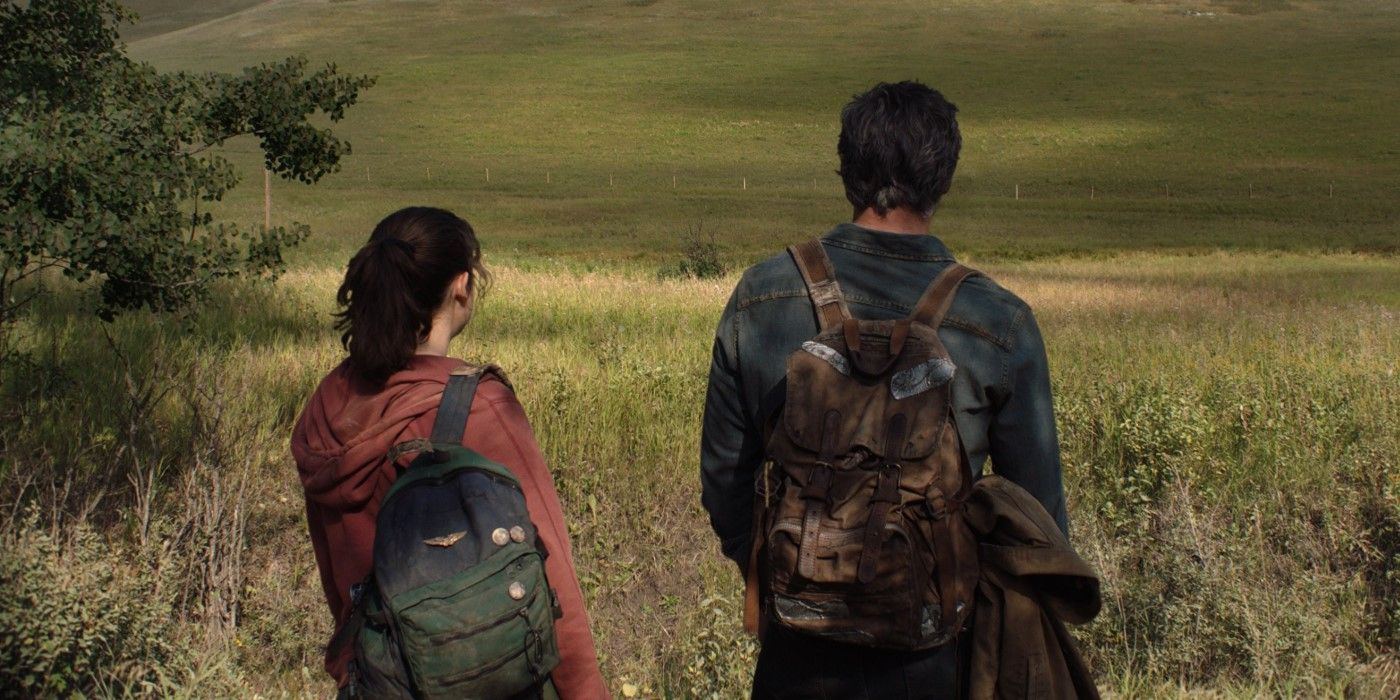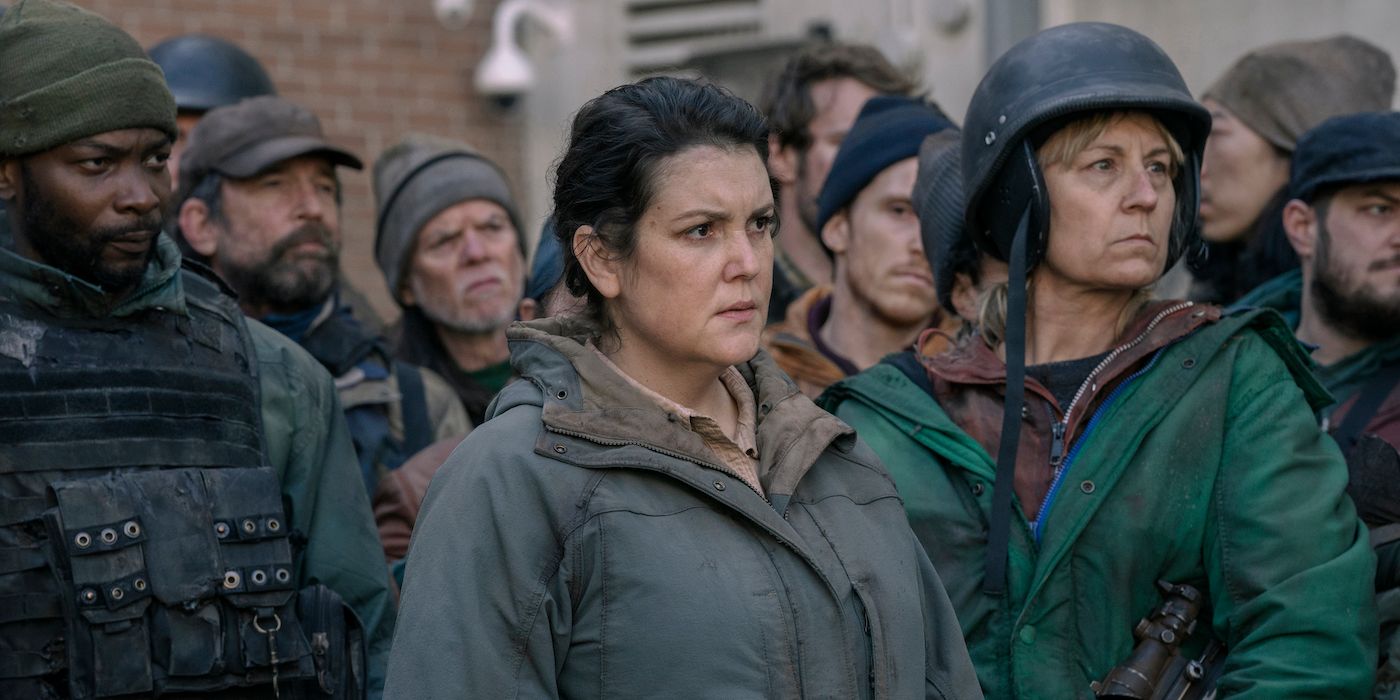Editor's note: The below contains spoilers for Season 1 of the Last of Us.As Season 1 of The Last of Us comes to an end, now is the perfect time to look back at the HBO series and see how well it fares compared to other staples of the zombie horror genre. The most popular of such comparisons is with another hit, AMC's The Walking Dead, and it's easy to understand why. Both are adaptations of iconic works in other media and both were the talk of the week during their tenures on TV, so it's inevitable to pitch them against each other and see which is the last show standing.
There are indeed many similarities between them, but the general feeling is that The Last of Us has brought more to the table than its counterpart. In terms of story, both series have a similar approach, focusing on how humans are the real danger after the apocalypse, even with literal zombies walking around. This premise, coupled with their compelling sets of main characters, is what made them the hits they are now, but there's a huge difference in how each works their own stories to explore this same idea. That said, the dominant feeling is that The Last of Us has indeed brought more to the table than The Walking Dead, avoiding many of the mistakes of the older show. Why, though?
Their Platforms Are as Important as Their Stories
Before HBO picked it up, a live-action adaptation of The Last of Us had been making the rounds for a long time. It was briefly supposed to be a movie by Screen Gems with a completely different tone, but was ultimately dropped. When HBO decided to develop the project, they brought along Neil Druckmann, one of the creators of the original Naughty Dog game, and Craig Mazin, who had developed the hit show Chernobyl with HBO in the past. The duo was tasked with adapting the game onto the screen within the traditional HBO premium cable format of a short season.
On the other side, there's The Walking Dead, one of the flagships for AMC. Falling within the purview of regular cable TV, The Last of Us video game was completely different from the adaptation of Robert Kirkman's comics. The show had to work with longer seasons, complete with mid-season and season finales, and had no end in sight, as the original comic's run hadn't ended when it aired on TV. That factor alone puts The Walking Dead closer to Game of Thrones than to The Last of Us, forcing writers to plan on filling gaps that hadn't yet been filled by the original material.
Comparing those two shows without taking into account their platforms is impossible, because that's the factor that dictated most of how they were supposed to be developed. They were also each released in completely different industry contexts. For The Walking Dead, cable TV was the rule, so seasons have to last for nearly a semester, while The Last of Us was born into an already established streaming era. HBO always did work with shorter seasons for its shows, granted, but streaming made that the general rule, as there had to be a constant offer of different content to keep viewers loyal to the platform without them being fixated on just one series.
The Last of Us airs on HBO and HBO Max simultaneously, but it was designed for streaming, while its counterpart had a completely different purpose. Now, The Walking Dead is struggling to catch up with the current entertainment business landscape with lots of different spin-offs, some already over, others still in development. None of them have enjoyed the same success as the main show, and the fact it had many ups and downs over its run on TV is a testament to how much it was affected by the changing nature of the industry.
Original Media Sets Different Standards for Loyalty to the Source Material
By itself, the difference between their platforms already poses completely different sets of challenges for The Last of Us and The Walking Dead, but there's also the matter of their source materials. A video game is completely different in nature than a comic book, and that has to be taken into account when adapting. The game is set to have a total runtime of around 14 hours, while The Walking Dead comics have lasted for 16 years. When that gets translated onto the screen, of course there will be disparities from the original stuff.
For The Last of Us, that meant a very dynamic story, with tight storylines and a rather accelerated pace. One of the main complaints about it is that, for a zombie horror show, it has been lacking zombies. That's fair, but it has also proven that the undead aren't really the point of the show. The apocalypse is but the setting for the main plot, not the plot itself, and it hasn't shied away from depicting humans as the real danger, too. Villains like Kathleen (Melanie Lynskey) and David (Scott Shepherd) come along and get their due development in usually no more than a single episode.
Also, it structures the progress of Ellie (Bella Ramsey) and Joel (Pedro Pascal) around their contact with supporting characters, making those just as compelling as the main duo. Arcs like Bill and Frank's (Nick Offerman and Murray Bartlett), Tess' (Anna Torv), and Henry and Sam's (Lamar Johnson and Keivonn Woodard) are good examples because they serve their purposes in the story and let Ellie and Joel move on, regardless of being friends or foes. That's all because those characters, even the ones conceived exclusively for the show, have to play into a story that follows the same guidelines of the original game. There are deviations, sure, but all of them ultimately follow the same guideline established by the source material.
The Walking Dead, on the other hand, had long story arcs, sometimes focusing on a single character for episodes. Brief arcs from the comics, like the Governor's (David Morrissey), for example, were stretched to whole seasons, to the point in which we got episodes that may have played into the story, but could have easily been woven with more content rather than focusing on a single character. It's interesting to understand what drives a character, and The Walking Dead had many compelling ones in the beginning but lost track of how to keep them engaging. By the end, the show was barely recognizable for the occasional viewer who watched it in the beginning, with so many new characters rotating through the main roster and getting so much screen time.
Ultimately, though, it all boils down to the purpose of the zombie horror genre. The apocalypse is not supposed to be where things last, but to show how brief everything really is, and that's the main difference between those two series. While The Last of Us makes its characters face their issues and move on, The Walking Dead stretched everything as much as possible, often losing itself along the way as it tried to walk the line of beauty and wickedness with no purpose at all.
Find out more about how to watch Season 1 of The Last of Us on HBO and HBO Max.



